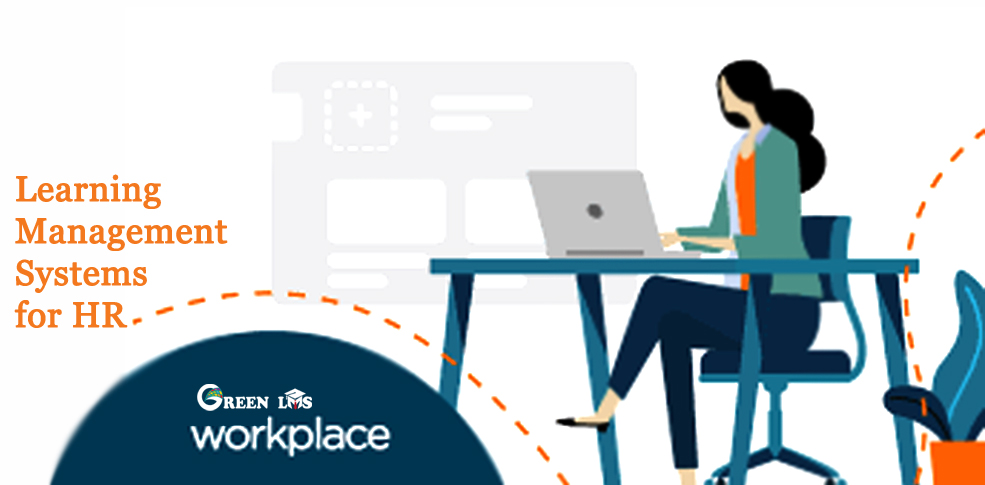The Power of Learning Management Systems for HR Excellence
In today’s dynamic and competitive business landscape, continuous learning and development (CLD) have become essential for organizations to thrive. As the driving force behind human capital management, HR departments play a pivotal role in fostering a culture of CLD within their organizations. Learning management systems (LMS) have emerged as powerful tools that empower HR professionals to promote and support CLD initiatives, driving organizational success.
Benefits of an LMS for HR
An LMS offers a multitude of benefits for HR departments, enabling them to effectively manage and deliver training programs, track employee progress, and foster a culture of continuous learning:
1. Streamlined Training Management: Automate administrative tasks, such as enrollment, scheduling, and attendance tracking, freeing up HR professionals’ time to focus on more strategic initiatives.
2. Personalized Learning Experiences: Tailor training content to individual needs, learning styles, and career aspirations, enhancing engagement and effectiveness.
3. Data-Driven Insights: Gain real-time insights into employee progress, skill gaps, and training effectiveness, enabling data-driven decision-making.
4. Cost-Effective Training Solutions: Reduce training costs by centralizing training resources and delivering online and blended learning programs.
5. Improved Employee Engagement: Enhance employee engagement and motivation by providing access to engaging, interactive, and self-paced learning opportunities.
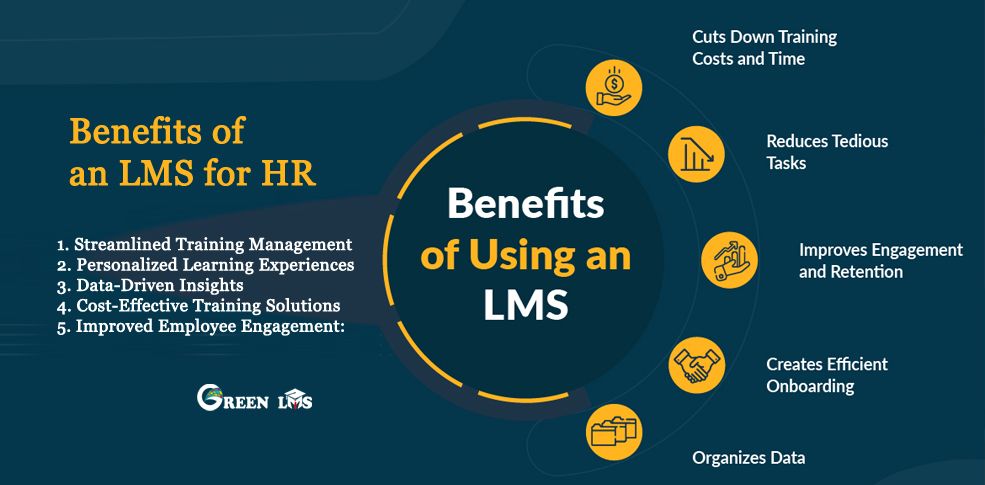
Choosing the Right LMS for HR
Selecting the right LMS for HR requires careful consideration of various factors, ensuring it aligns with the organization’s specific needs and goals:
1. Training Requirements: Assess the types of training needed, the number of learners, and the complexity of training programs.
2. Integration Capabilities: Ensure the LMS seamlessly integrates with existing HR systems, such as payroll and performance management software.
3. Scalability: Choose an LMS that can accommodate future growth in the organization’s workforce and training needs.
4. Ease of Use: Evaluate the LMS’s user interface and ensure it is easy to navigate for both HR administrators and learners.
5. Vendor Support: Assess the level of vendor support provided, including training, maintenance, and ongoing updates.
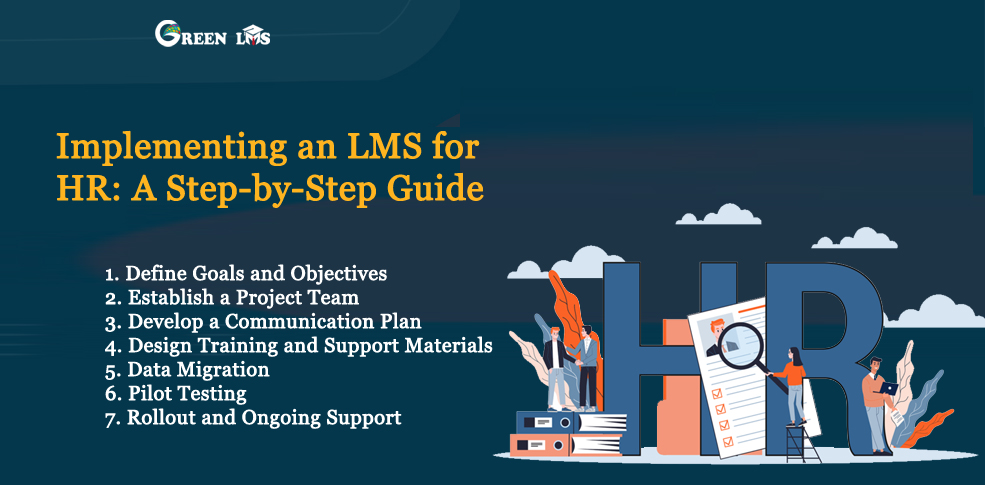
Implementing an LMS for HR: A Step-by-Step Guide
Effective LMS implementation involves a structured approach to ensure a smooth transition and maximize its impact:
1. Define Goals and Objectives: Clearly outline the organization’s CLD goals and how the LMS will contribute to achieving them.
2. Establish a Project Team: Assemble a cross-functional team with expertise in HR, technology, and training to oversee the implementation process.
3. Develop a Communication Plan: Create a comprehensive communication plan to inform employees about the LMS, its benefits, and how to use it effectively.
4. Design Training and Support Materials: Develop training materials for HR administrators and learners to ensure they can fully utilize the LMS’s features.
5. Data Migration: Migrate existing training content and learner data into the LMS, ensuring data integrity and accessibility.
6. Pilot Testing: Conduct pilot testing with a small group of users to identify any potential issues and refine the implementation process.
7. Rollout and Ongoing Support: Roll out the LMS to the entire organization and provide ongoing support to address any questions or concerns.
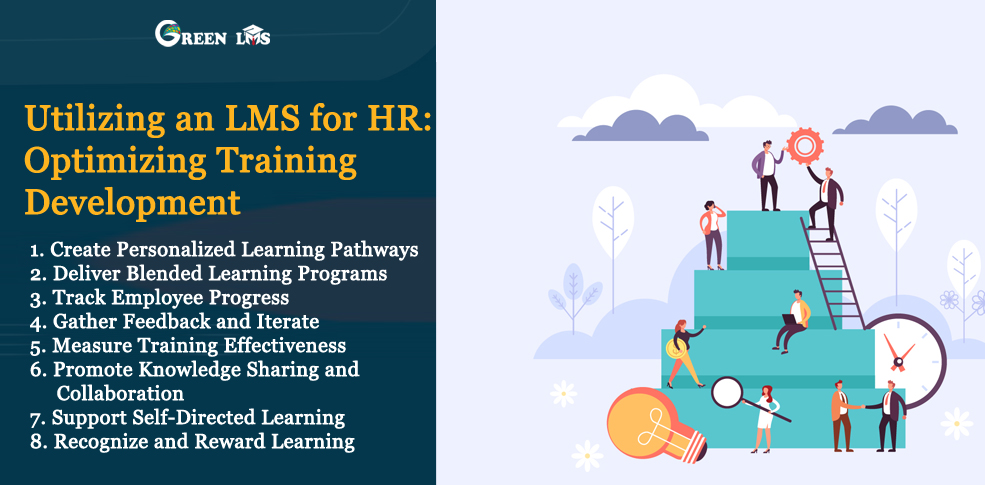
Utilizing an LMS for HR: Optimizing Training and Development
HR departments can leverage the LMS to optimize training and development initiatives:
1. Create Personalized Learning Pathways: Utilize the LMS’s capabilities to tailor training programs to individual needs and learning styles, enhancing engagement and effectiveness.
2. Deliver Blended Learning Programs: Combine online training with in-person workshops, simulations, and mentorship opportunities to create a comprehensive learning experience.
3. Track Employee Progress: Monitor learner progress, identify knowledge gaps, and provide timely interventions to ensure successful learning outcomes.
4. Gather Feedback and Iterate: Continuously gather feedback from learners and refine training programs based on their Utilizing an LMS for HR
5. Measure Training Effectiveness: Utilize data analytics to measure the effectiveness of training programs, identify areas for improvement, and optimize resource allocation.
6. Promote Knowledge Sharing and Collaboration: Foster a culture of knowledge sharing and collaboration among learners through forums, discussion groups, and social learning tools.
7. Support Self-Directed Learning: Empower learners to take ownership of their learning journey through self-paced courses, personalized recommendations, and performance tracking tools.
8. Recognize and Reward Learning: Recognize and reward learners for their accomplishments, fostering a culture of continuous learning and achievement.

Leveraging LMS to Drive HR Excellence
By effectively implementing and utilizing an LMS, HR departments can:
1. Streamline Training Management: Automate administrative tasks, free up HR professionals’ time, and focus on strategic initiatives.
2. Foster a Culture of Continuous Learning: Promote personalized learning experiences, data-driven insights, and knowledge sharing among employees.
3. Enhance Employee Engagement: Provide engaging, interactive, and self-paced learning opportunities, boosting motivation and productivity.
4. Drive Organizational Success: Equip employees with the skills and knowledge needed to adapt to changing demands and contribute to the organization’s growth.
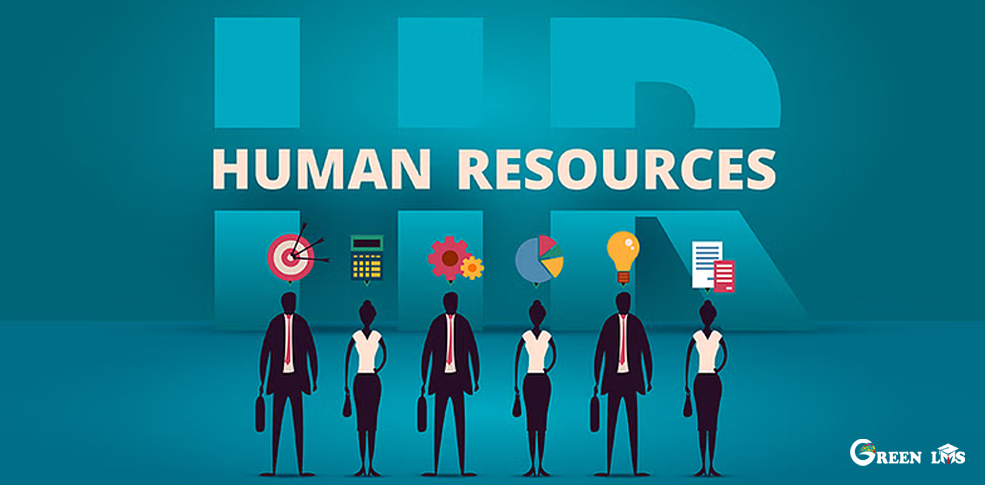
Green LMS: The Driving Force for HR Excellence
In the dynamic world of human resources (HR), continuous learning and development (CLD) are essential to fostering a high-performing, adaptable workforce. Green LMS stands as a beacon of innovation, seamlessly integrating cutting-edge technology with a user-centric approach to empower HR professionals and organizations to achieve their CLD goals.

Green LMS: Empowering HR Professionals
Green LMS provides HR professionals with a comprehensive suite of tools to streamline training management, enhance employee engagement, and foster a culture of continuous learning:
Streamlined Administrative Tasks: Automate routine tasks, such as enrollment, scheduling, and attendance tracking, freeing up HR professionals’ time to focus on strategic initiatives.
Personalized Learning Pathways: Leverage AI-powered algorithms to tailor training content to individual needs, learning styles, and career aspirations, ensuring personalized and effective learning experiences.
Data-Driven Insights: Gain real-time insights into employee progress, skill gaps, and training effectiveness, enabling HR professionals to make informed decisions about training programs and resource allocation.
Enhanced Employee Engagement and Motivation: Provide access to engaging, interactive, and self-paced learning opportunities, boosting employee motivation and fostering a culture of continuous learning.
Empowered Learning and Development: Equip HR professionals with the tools and resources to create, curate, and deliver high-quality training programs that meet the specific needs of the organization.
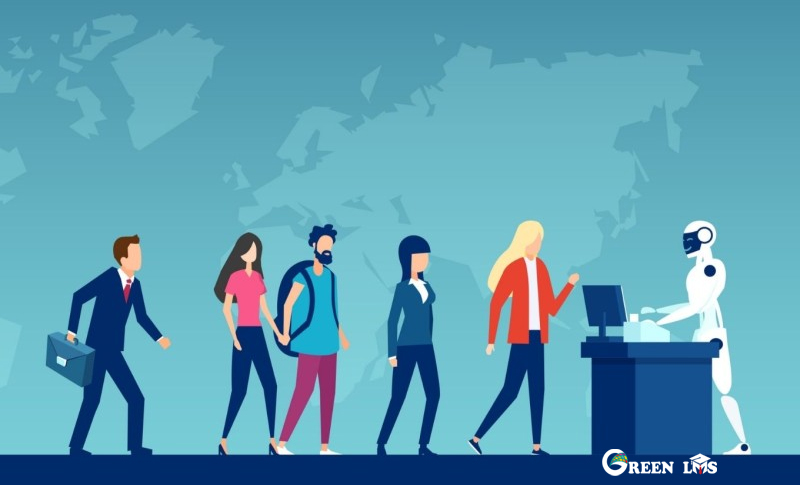
Green LMS: Driving Organizational Excellence
Green LMS empowers organizations to achieve their strategic goals by:
Enhancing Employee Skills and Knowledge: Provide employees with the skills and knowledge needed to adapt to changing demands, contribute to innovation, and drive organizational success.
Improving Employee Performance: Foster a culture of continuous learning and development, leading to enhanced employee performance, increased productivity, and improved overall organizational outcomes.
Reducing Training Costs: Centralize training resources, deliver online and blended learning programs, and optimize resource allocation, leading to cost-effective training solutions.
Strengthening Internal Communication and Collaboration: Facilitate knowledge sharing and collaboration among employees, fostering a cohesive and engaged workforce.
Promoting Innovation and Adaptability: Equip employees with the skills and mindset to embrace innovation, adapt to change, and contribute to the organization’s long-term growth.

Green LMS: The Future of HR
Green LMS is at the forefront of innovation, continuously evolving to meet the changing needs of HR professionals and organizations:
AI-Powered Personalization: Utilize advanced AI algorithms to provide increasingly personalized and effective learning experiences.
Immersive Learning Experiences: Integrate virtual and augmented reality technologies to create immersive and engaging learning environments.
Predictive Analytics and Early Intervention: Identify potential challenges and skill gaps early on, enabling timely interventions and personalized support.
Adaptive Learning Algorithms: Continuously adapt training content and pathways based on learner behavior and progress.
Conclusion: Green LMS: Your Partner in HR Excellence
Green LMS stands as a transformative force in the world of HR, empowering HR professionals and organizations to achieve their CLD goals and drive organizational success. With its unwavering commitment to innovation, user-centric design, and data-driven insights, Green LMS is the ideal partner for HR professionals seeking to foster a culture of continuous learning, enhance employee engagement, and drive organizational excellence.
Green LMS is a perfect fit. Experience the best of next-gen learning with a free trial of this cloud-based LMS. Discover more about LMS for Business, LMS for Universities, LMS for Schools, LMS for Business, and LMS for Corporate. Secure your Free LMS Trial of this Cloud-based solution today.
Want to know more how Green LMS automates the process of developing and identifying Leadership please click Book a Demo (https://www.thegreenlms.com/book-a-demo/)

